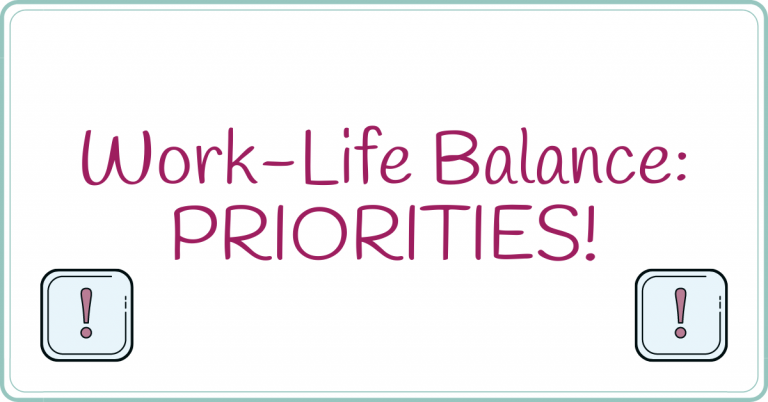How You Should Spend Your Time When You’re In Between Jobs
“There’s a gap in your resume. Can you tell me what happened at that time?”
The dreaded question.. but it doesn’t have to be.

It’s normal to have a gap, so what do they really want to know?
Simply put: they want to know how you productive you were.
When you were unemployed, were you..
- Getting educated?
- Learning new things?
- Puttering around, moping?
- Seeing the world?
- Being productive?
- Planning for the future and making moves?
- Doing hard time?
When deciding on your response to this question (practice beforehand), your focus should be on conveying the image of a go-getting, can-do potential employee. If it’s not, you might have a tough time getting back into the workforce and you might end up back in a menial job until you get some more experience under your belt.
Let’s discuss!
Please continue to be involved in career-oriented activities. I can’t stress this enough! Not only will it alleviate your feelings of hopelessness and discouragement, it’s important to your future job hunt.
Here are a few suggestions to keep yourself actively engaged while out of work:
Volunteer
Volunteer your services and put that skillset on display.
This is a win-win.
You’re giving back to an organization that means something to you and/or your community PLUS you get the added benefit of being able to showcase your skillset.
It turns your time into potentially valuable networking. Yay for that!
Follow the.. You?
Try your hand at being a leader.
Charitable organizations could use a point person for events or whatever your skillset is in. They also need managers and board members. Same goes for professional organizations.
So, be that leader!
Take your involvement to the next level:
- Super organized and good at delegating to a group? Organize events.
- Have any leadership qualities and/or fresh ideas? Serve on the board.
- Good at writing persuasive copy? Offer to write emails newsletters.
- Graphic designer? Create fliers and social media posts.
Taking that role just might lead to your next job, or at least a few small jobs for the time being. You also might be able to teach someone the skill for a bit of pocket change, but we’ll get to that.
Get Educated
Try taking classes, online or off.
Potential employers are going to question outdated skills, especially if your field is technical. You could try:
- Taking a class or two
- Pursuing an advanced degree
You can find some great classes on sites like:
- Udemy
- Skillshare
- Coursera
- Local College & University Websites
The point is: make sure you brush up on current trends and skills in your field. It will give you an excellent opportunity to show that you still have your finger on the pulse of your chosen industry, even with time off.
Intern
Of course, this is encouraged early on in your career, but even if you’ve held a full time job before, finding an internship might be a good way to go.
It’s a great idea for those considering changing careers totally (or even pivoting). An internship could jumpstart the second half of your career.
Teach
You could also try teaching a class.
I know what you’re thinking: “I’m not an expert. I can’t teach.”
Wrong. You only have to be one step ahead of the person who is learning from you.
For example: I’m going to teach you about football. All I know is the difference between a touchdown and a touchback, but since you don’t know anything, I can teach you about it. I can learn as I go, then I can teach you more.
So where can you find a teaching job?
You can upload your course to an online platform like:
- Podia
- Teachable
- SkillShare
- YouTube (make the videos available by link only and add them to a pdf that students receive when they pay for your course)
If you don’t want to go the online route, you can check with local places that are looking for experienced professionals to teach classes like:
- Universities
- Community colleges
- Continuing-education programs (night school, programs at the Y, libraries)
Why is this good? Several reasons:
- Offers a potential avenue to earning money by leading to a full time teaching job.
- Looks impressive to potential employers.
- Positions you as an expert in your field.
- Gives you the ability to impart knowledge and gain testimonials for future use.
All of these would look incredible on a resume.
Consulting & Marketing Yourself
If you have a valuable enough skillset, you might be able to set yourself up as an independent consultant. It could cut your drawn-out job search down dramatically.
Check with:
- Local organizations (like the ones you volunteer with)
- Small businesses
- Local non-profits
Any and all of these places could use your ideas. The best part is that consulting could be a part time thing, meaning you could take on a few clients at once.
I’ve definitely mentioned this before, but it bears repeating.
Create business cards and a website.
When starting out, your clients may be small ones, but being a consultant allows you to market yourself as someone actively engaged in your field.
Join Groups & Get On Social Media
A few places you can find groups for job hunting (in person and online):
- Churches
- Libraries
- Social Media
- Local Job Fair Groups (get involved with planning if you can)
These groups not only help find jobs, they also offer support. In joining, you’ll be able to expand your network contacts, so make sure people know you’re looking for a job.
Personal connections mean just as much as professional connections while you’re on the hunt for your next career move.
Ask others for recommendations:
- Where they learn new skills
- Any relevant in-person events
- Online groups they have heard of or are in themselves
Do your best to keep expanding your network.
Start a Business
If you ever thought about it, the period between jobs might be your best bet for getting off the ground.
Think about it:
- What do you love to do?
- What are you good at?
- Where do those two things combine?
That’s your sweet spot to build on.
You can purchase our Business Planning Journal to get started.
ABOVE ALL
Don’t forget to have fun!
You know what they say: “Don’t take life to seriously – you’ll never get out alive.” Things always seem to work out as they should, in God’s timing.
So do yourself a favor:
- Enjoy your life.
- Go play golf.
- Head out for a run.
- Build something, like a gazebo or fancy shed.
- Do that thing you always wanted to.
- Do the things you never got around to.
If nothing else, it will give you something to talk about and set the tone for your next conversation, so you can see what others are doing in their spare time.
Conversation is the lifeline that will keep your job hunt going , which leads us to our next part…
let’s Talk About
Effective Networking
On the hunt for an entry level job?
You are going to need above average networking skills to get the jumpstart you want. It might even be more important than what’s on your resume. You can look good on paper, but be an ineffective employee if your networking needs work.
Strong networking skills could be the key to a successful career, according to an article from Forbes. So..
- Are you struggling with your people skills?
- Need help in learning how to expand your network?
Keep reading..
First Things First
Start collecting business cards and contact info from people you already know. Keep them all in a central place.
I recommend Trello because you can separate contacts into groups and add attachments, like a picture or a business card. It is accessible on your desktop, as well as your phone. There are so many extensions and helps that enhance the experience too.
There’s no substitute for good old fashioned networking, so don’t miss a chance to attend an event if an opportunity arises. You just can’t put a price on the value of first impressions nor underestimate the importance of meeting up in-person, so you need to be a bit creative to stand out.
Be on the lookout for meetup opportunities, especially if you are new to the job market. If you are in an industry that requires more networking and socializing than you’re comfortable with, do your best to limit the amount of times you say ‘no’.
A good rule of thumb: for every 2 invitations you turn down, you must attend one.
Let’s discuss some strategies to make this a bit easier for you.
Search Engines
Do you know how to use the internet? Great!
Do you know how to effectively narrow down a search so you get specific results? If not, you might want to do a little digging about it.
You’re going to want that skill in your toolbox as new opportunities arise.
You want to be armed with any info you can find, so you don’t end up with a company that has a bad rep or sketchy web appearance.
Spreadsheets & Tables
As I mentioned, I recommend Trello to keep your contacts in one place, but you can also use a spreadsheet.
Add as much info as you can:
- Company Name
- Key Contact
- Phone Numbers
- Emails
- Website/Social Media URLs
Keep notes. If you discussed something, add it to the notes.
If you prefer a paper version, you can try our Networking & Contact Info Sheets in the shop.
Do your best to keep the data organized and as up-to-date as possible.
Contact & Connect
Collect those contacts and use them as needed. When possible, initiate face-to-face contact. Regular contact is vital to keep up your network. Don’t take them for granted.
Find reasons to communicate:
- Ask advice.
- Offer useful info.
- Send over relevant/new news in their field.
When they respond or do something for you, be sure to thank them in a timely, polite and professional manner. As I said, do not take them for granted.
The Bottom Line:
Never underestimate the power of networking! It can be a great way to spend the time in between jobs, no matter which direction your career is moving.
It doesn’t matter if your next career move is entry level or if you intend to climb another rung on the corporate ladder.. your networking savvy just might be what sets you apart in the sea of samesies, so prep for that now while you have the time.
Good Luck!
Stock Photos:
resources
Networking Contacts Pages
Keep these in the pocket of a folder/notebook when you go to networking events.
What are they for?
- Write down contact info
- Write notes for follow-up
There are only two pages (one of each kind), but I recommend printing 5 of each for every event.

Click Here to Buy!
Business Planning Journal
Everything you need to get your business started on the right foot. Get all those plans on paper!
- Daily, Weekly & Yearly Plans
- Business Value Worksheets
- Product & Competitor Research
- Pricing Calculator
- Marketing Plan
- Notes Pages








